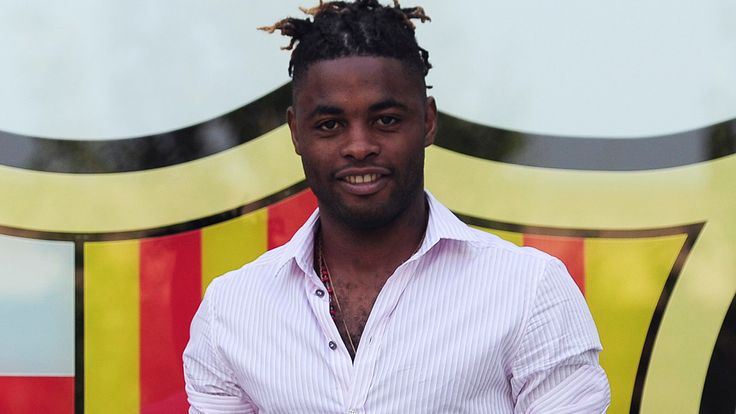Alex Song has become the latest player to leave Arsenal for Barcelona, and Daniel Storey looks at whether the move will be more Alexander Hleb than Cesc Fabregas.

Tuesday 21 August 2012 17:04, UK
Daniel Storey assesses the chances of Alex Song's move to Barcelona being a success.
It was a sight that Arsenal fans have grown wearily accustomed to. On Monday, Alex Song was paraded in front of the Spanish media, joining Thierry Henry, Sylvinho, Marc Overmars, Emmanuel Petit, Giovanni van Bronckhorst, Alexander Hleb and, of course, Cesc Fabregas in the move from North London to Catalunya during Arsene Wenger's reign. The majority of those players before him, however, were glamour signings, but Song is not that player. That is not his intended use. So how does Song fit into the Barcelona set-up? How much first-team action can he expect to enjoy? And does he even have enough ability to mix with the cream of European football? Firstly, it would be remiss not to mention Song's evident recent improvement. Although Robin van Persie rightly gained significant plaudits for his displays last season and indeed was Arsenal's standout performer, Song also received deserved praise. His 11 assists were bettered by only three players in the Premier League, and an increase of seven from the previous campaign indicated his ability to both step out of Fabregas' shadow and assist Arsene Wenger in coping with the long-term injury to Jack Wilshere. Despite often performing in central defence during his formative years (particularly during a loan spell at Charlton), Song has recently offered more in terms of attacking creation than defensive stability. Indeed, the ambivalence to the transfer from many Arsenal fans comes from the suspicion that Song's attacking mindset actually left the side's defence exposed at times last season, particularly away from home where Arsenal conceded 32 goals in 19 games, their highest total since 1986. When in Spain, Song may be expected to quickly curb his offensive enthusiasm. Between Xavi, Andres Iniesta, Fabregas and Thiago Alcantara, Barcelona undoubtedly have the ball-playing midfielder role covered, and it is apparent that Song has initially been purchased as an understudy to Sergio Busquets, operating in a far more reserved role than last season. Discussing the transfer, coach Tito Vilanova remarked: "Busquets can't play every game of the season, so Song will be a great addition." For Barca, the logic is evident. After winning three Primera Liga titles and two Champions League trophies in three years, the club failed to secure either honour last season, and Vilanova's first remit upon being appointed was to address a lack in squad depth that had hampered the Catalan giants. Whilst Real Madrid dropped just six league points after Christmas, Barcelona dropped double this amount, looking particularly fatigued during their defeat in El Clasico in April. Although Javier Mascherano was signed as a defensive central midfield option, injuries to Eric Abidal, Carles Puyol and Gerard Pique forced the Argentine into a role in the heart of defence, a transformation that is nigh on complete.